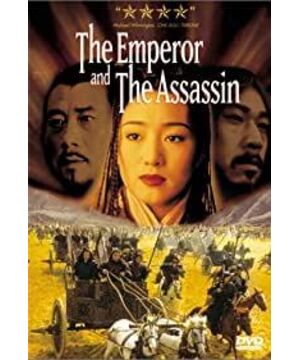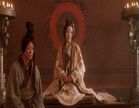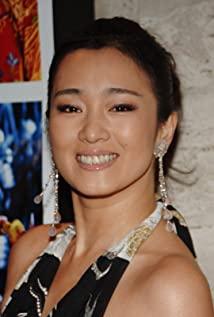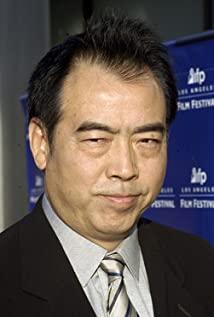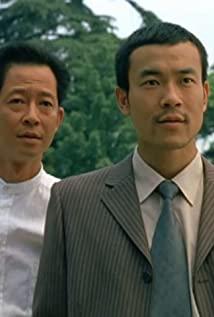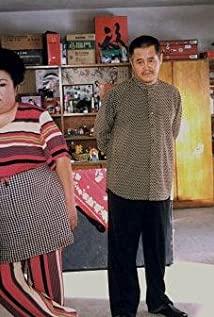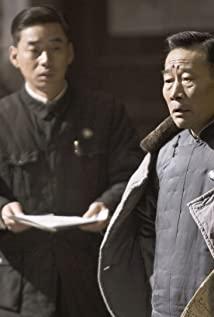History aside, because the stories in the pre-Qin classics may have some details added to the author or narrator. The story of Jing Ke assassinating the King of Qin was written by Tai Shi Gong as if he had seen it with his own eyes, and I think he must have made up his own mind. It takes some plots to make it so vivid. This story script is adapted from a Japanese manga, so I won't do too much research. It's amazing as an actor. Especially the Gao Jianli of teacher Zhao Benshan, this is simply shocking, he was too surprised when he acted in a movie in 1998. When he sang "The wind is small and the water is cold, and the strong man is gone, he will never return", the image of "the spring breeze of reform blowing all over the ground" appeared in my mind again. This may be the feeling that will arise when I look at it now. I was a little unconvinced at first glance, so I went to check the cast and crew. Although Pan Changjiang's shot is very short, it still looks very interesting. Teacher Zhou Xun played the blind girl pure and lovely. Although the scene is short, it still reminds people of the lively and lovely Taiping in "Da Ming Palace Ci". Teacher Wang Zhiwen's maid is still very expressive. Lv Buwei, director of Chen Kaige, joked that he was a "father" for Qin Wangzheng. When I see Mr. Gong Li, I always think of a childhood past. Whether it's "Red Sorghum" or "Farewell My Concubine", all I think of are a girl in my youth. She looks very much like Gong Li, especially when she laughs. when. I really saw that Teacher Gong Li always touched my dusty memories, so I didn't tell too many stories about him in detail. Jing Ke's decadence at the beginning always gave me a feeling of Duan Xiaolou, which may be the reason why I just finished watching "Farewell My Concubine" recently. Of course, my favorite is the art of this drama. Teacher Tu Juhua won the 52nd Cannes International Film Festival Technology Award in 1999 because of this drama. I have seen the interview, but many scenes in this show are very reductive. Anyway, I didn't find anything particularly unreasonable. This is the first movie I've seen that uses a tripod to cook and a bronze utensil to make tableware. This is very valuable and real. Back then, the studio was not allowed to have open flames, and this filming was actually quite difficult. The city wall built by rammed earth, the chariots galloping, the scene is grand and shocking. Of course it's time to do some research. In fact, the name "Ying Zheng" must have been problematic at that time, because Ying was a surname, and in ancient times, surnames and surnames were different. The surname was shared by a large family, and the surname was unique to the branch, many of which were related to the fief or the place of birth. For example, Qu Yuan's fiefdom was in renunciation. At that time, men did not call "surnames", but more used "shi". For example, Yan Dan, Qu Yuan, etc., "Historical Records" records that "the first emperor of Qin is also Prince Zhuangxiang of Qin. Prince Zhuangxiang was Qin's proton to Zhao, and when he saw Lu Buweiji, he was pleased to take him and gave birth to the first emperor. In the first month of the forty-eighth year of King Qin Zhao, he was born. in Handan. Jisheng, named Zheng, surnamed Zhao. It also said that Qin Shihuang's surname was Zhao, so he could be called "Qin Wangzheng" and "Zhao Zheng". "Historical Records of Qin Benji" said "Shun gave the surname Ying", and Jiang Ziya, for example, should not have been called Jiang Ziya at that time. , he should be called "Lv Shang". His ancestors once served as officials of the Four Mountains. Speaking of Shang Yang, in fact, he was originally called Wei Yang, because his birthplace was in Wei, and later he was called Shang Yang because his fief was in Shang land. According to the "Historical Records", "The king of Shang, the son of Wei's concubines, was named Yang, and his surname was Gongsun. , and his ancestor Ben Ji surnamed also. ...Since Wei Yang was defeated by Wei and returned, Qin sealed it up in the fifteenth town of Shang, and named it Shang Jun. From these examples, we can see that the ancients rarely used surnames, and more often used surnames. Women would use surnames to address them, such as Zhuang Jiang and Wen Jiang from Qi State at that time, as well as that Mi Yue. These are actually surnames , Mi is the national surname of the state of Chu, but the king of Chu is generally called "Xiong X" because Xiong is the clan. "Historical Records 10 Chu Family" records: "Gao Yangsheng..., Lu Shisheng six sons, one They are called Kunwu, the second is Shenhu, the third is Pengzu, the fourth is Huiren, the fifth is Cao, the sixth is Jilian, Mi, and later Chu... Afterwards, in Zhongwei, either in China or in barbarians, it was impossible to remember Qi's clan. Yan Dan gave Concubine a jade tomahawk, and Concubine said, "This tomahawk is used by the king." In fact, this is true. In "The Orphan of Zhao", there is also a tomahawk behind the king's back, which in the pre-Qin era represented power and royal power symbol of. Six people, one is Kunwu, the second is Shenhu, the third is Pengzu, the fourth is Huiren, the fifth is named Cao, the sixth is named Jilian, and the surname is Mi. Afterwards, in Zhongwei, either in China or in barbarians, it was impossible to remember Qi's clan. Yan Dan gave Concubine a jade tomahawk, and Concubine said, "This tomahawk is used by the king." In fact, this is true. In "The Orphan of Zhao", there is also a tomahawk behind the king's back, which in the pre-Qin era represented power and royal power symbol of. Six people, one is Kunwu, the second is Shenhu, the third is Pengzu, the fourth is Huiren, the fifth is named Cao, the sixth is named Jilian, and the surname is Mi. Afterwards, in Zhongwei, either in China or in barbarians, it was impossible to remember Qi's clan. Yan Dan gave Concubine a jade tomahawk, and Concubine said, "This tomahawk is used by the king." In fact, this is true. In "The Orphan of Zhao", there is also a tomahawk behind the king's back, which in the pre-Qin era represented power and royal power symbol of.
View more about The Emperor and the Assassin reviews


